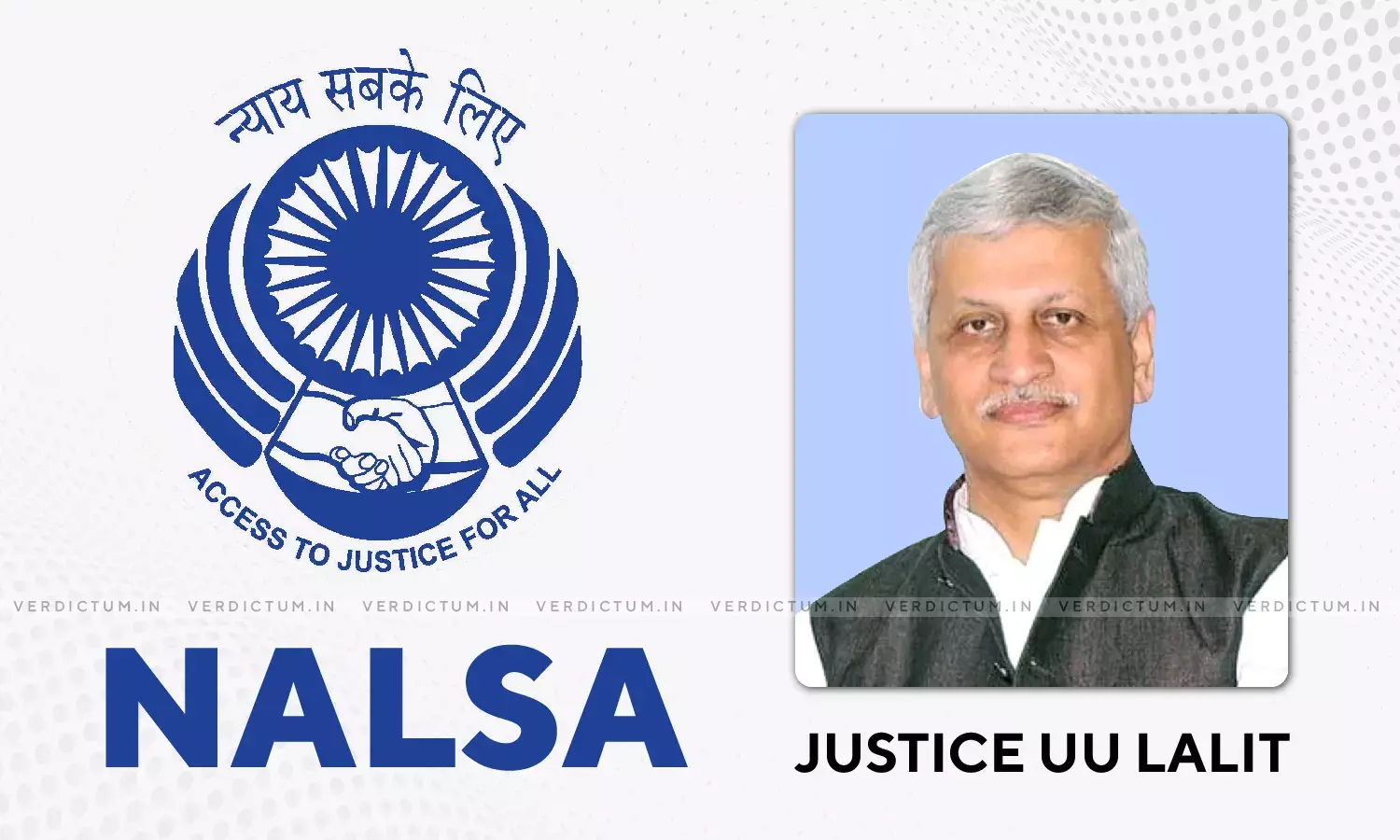Justice UU Lalit Calls Upon Senior Advocates To Render Pro Bono Legal Service

While stressing that good quality legal aid should be provided to the poor strata of the society, Justice UU Lalit of the Supreme Court has called upon Senior Advocates to render pro bono legal aid to the poor and marginalised sections to ensure that they get quality access to justice.
"Merely training the panel lawyers will not be sufficient. The solution to the problem is that some of the senior advocates must take legal aid as a matter of choice and keep on appearing for matters pro bono so that the man who comes through the door of legal aid service clinic is assured that it is not going to be a matter which is botched up and a quality legal aid will be extended to him," Justice Lalit said.
Justice Lalit is the Executive Chairman of the National Legal Services Authority and was speaking at a function organised by the Karnataka State Legal Services Authority in association with the District Legal Services Authority, Kalaburagi on 'Actualisation of Rights and Entitlements in Achieving Sustainable Development Goals 2020'.
Stressing on the importance of empowering the poor and downtrodden, Justice Lalit said that legal aid to the poor does not mean it is of poor level and it has to be of better quality and standard. Stressing on the need to empower women, the Judge said that women should be empowered to such an extent that they may run shoulder to shoulder with every one of us.
Justice Lalit commended the efforts of the Karnataka State Legal Services Authority with respect to the establishment of the off-campus legal services clinics and the release of a graphic novel to spread legal literacy in the state.
The National Legal Services Authority (NALSA) and the Karnataka State Legal Services Authority (KSLSA) have been performing an instrumental role in bringing justice to the doorstep of citizens by creating legal awareness amongst the common citizens.
As part of the NALSA Pan India Awareness and Outreach Campaign, and on the occasion of UN Day which is celebrated globally to mark the anniversary of the UN Charter coming into force on 24 October in 1945, the Karnataka State Legal Services Authority in association with the District Legal Services Authority, Kalaburagi had organised the program.
The program was attended by judicial officers, members of the local bar, law students, teachers and around 300 members of the Banjara Community (known colloquially as Lambanis).
With PTI inputs

